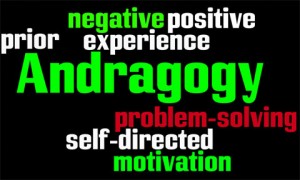 To further this concept of leadership in technology integration, I hope that Building a Culture of Collaboration Blog school librarian readers will consider the importance of their approaches to teaching teachers technology. While our ultimate goal is to get digital tools in the hands of students so they can use them for accessing information and planning presentations, and producing knowledge, working with classroom teachers and specialists is the way to ensure school-wide technology integration.
To further this concept of leadership in technology integration, I hope that Building a Culture of Collaboration Blog school librarian readers will consider the importance of their approaches to teaching teachers technology. While our ultimate goal is to get digital tools in the hands of students so they can use them for accessing information and planning presentations, and producing knowledge, working with classroom teachers and specialists is the way to ensure school-wide technology integration.
On Thursday, February 6th, I will deliver the Library/Media Specialist Academy Keynote at the Texas Computer Education Association Conference in Austin. You can access the online support for my presentation “Teaching Teachers Technology: The School Librarian’s Starring Role.”
When we consider that every time a school librarian or technology integrator facilitates a classroom teacher’s integration of technology tools, we are impacting the learning of every student in that educator’s classroom this year and most likely for years to come. It is important then that we learn effective strategies for teaching teachers. Theories related to andragogy, the science of teaching adult learners, were brought to the U.S. by Malcolm Knowles. This is my summary of his ideas about adult learners.
Adult learners:
1. are self-directed and take responsibility for their own learning.
2. have prior experience that can be a positive or negative influence on learning.
3. are motivated by an internal need to know.
4. have a problem-solving orientation to learning.
What instructional problems can we help classroom teachers solve in order to effectively integrate technology tools into learning and teaching in our schools?
References
Knowles, M. The adult learner: A neglected species. (2nd ed.). Boston: Gulf.
Word Cloud created at Wordle.net

I love the name of your presentation Judi! And yes you are correct technology has opened up so many opportunities for school librarians – for collaborating with teachers and also leadership roles. The school librarian as an educator and information specialist can model and teach teachers how to effectively integrate technology for teaching and learning throughout the curricular areas.
It is also important for school librarians to develop collaborative partnerships with the instructional technologist in their building. Too many times this is becoming a competitive relationship, which then only further hampers leadership efforts.
I love the name of your presentation Judi! And yes you are correct technology has opened up so many opportunities for school librarians – for collaborating with teachers and also leadership roles. The school librarian as an educator and information specialist can model and teach teachers how to effectively integrate technology for teaching and learning throughout the curricular areas.
It is also important for school librarians to develop collaborative partnerships with the instructional technologist in their building. Too many times this is becoming a competitive relationship, which then only further hampers leadership efforts.
Judi,
I agree that it is really important to have an appreciation for adult learners, especially if you are planning workshops, or are doing just in time professional development with them. So often we are focused on developing learning opportunities for younger learners, and adults are another ball of wax. thanks for reminding us of their special perspectives!
Best,
Judy K.
Judi,
I agree that it is really important to have an appreciation for adult learners, especially if you are planning workshops, or are doing just in time professional development with them. So often we are focused on developing learning opportunities for younger learners, and adults are another ball of wax. thanks for reminding us of their special perspectives!
Best,
Judy K.
Thank you so much for sharing the link!